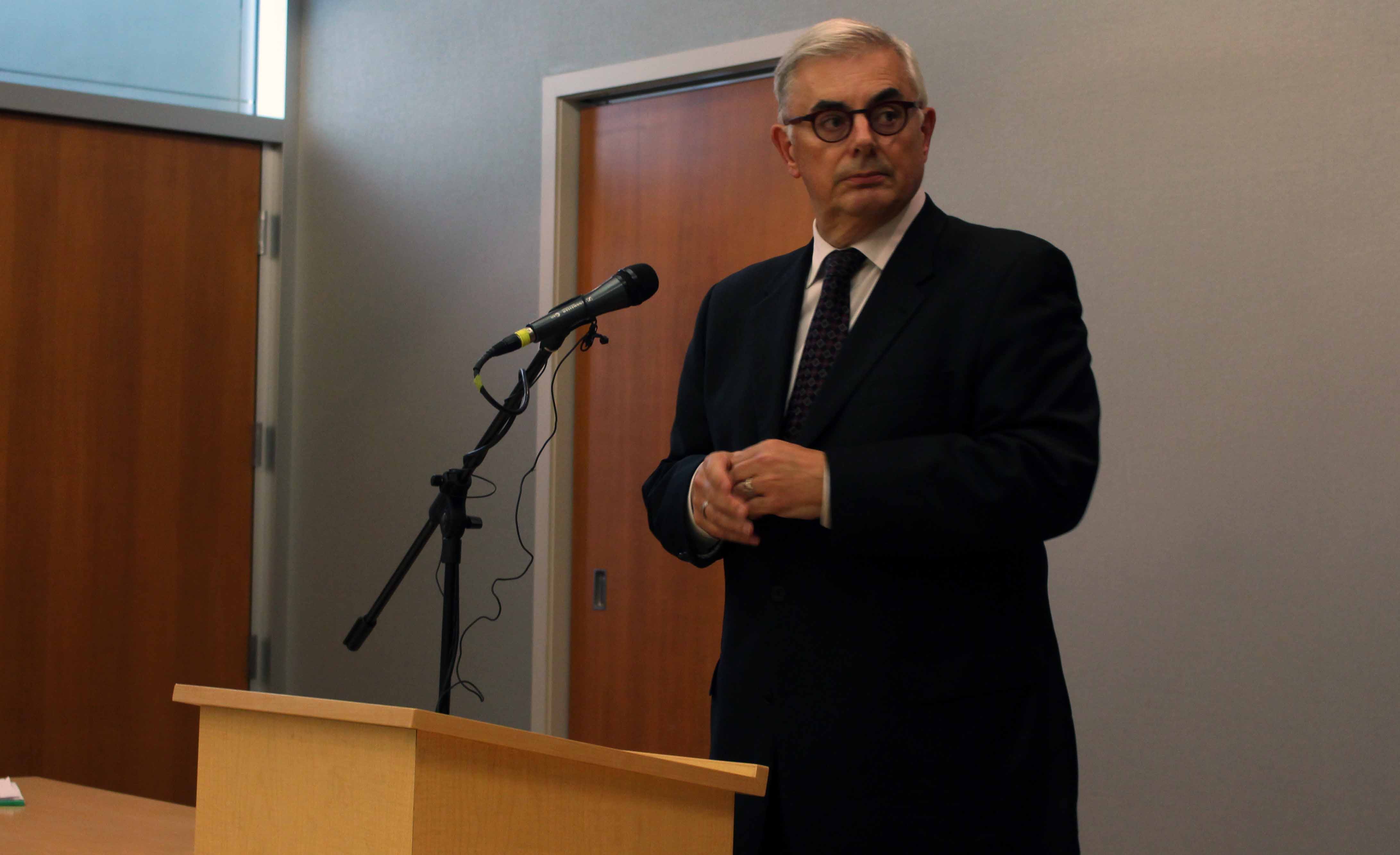I had almost become one of them, a Keeper of the Copper Trace. It comes back to me sometimes, deep in a djembe-drumming trance; the air takes on the telltale tang of ozone and there’s the unmistakable 60-hertz drone of cooling fans. No amount of incense will disperse the acrid, dusty smell. It’s burnt into my subconscious. That’s when the flashbacks start.
“Maybe it’s that wire, it doesn’t look like it connects.”
“No, I’m sure it does. We just put that one in. It’s probably this one over here; it kind of looks like it might be touching the one next to it. I told you not to strip them so much.”
“That one’s fine, have you checked the power rails? Do the headers work? Maybe we should just reset it?”
“Let’s look at the schematic again.”
As tradition goes, each year just as the leaves begin to change, the prospective electronics technicians are given a project. Each group has their own goals, their own guidelines, all subtly different yet bearing the hallmarks of the annual initiation ritual. Ours, we were told, was simple: design a communication protocol for an obscure microprocessor that the elders seemed to favour.
The task, as a rule, was challenging. This year — our year — it seemed nigh impossible. There had been a misstep, an error, on the part of our elders. The council had not convened when the seasons changed, the initiation had been delayed. The snow had already fallen when they gathered us, the unfortunate, and explained The Final Project. It would be a grievous, unforgivable sin to forego the process they said. The Gods would surely remove them from power. No, it had to be done.
I envy those born into simpler times. You can hear their stories, told by half-crazed men in vast halls, third-hand tales of mystic ceremonies, tests of strength. The transition into adulthood, they say, is hardest in the oldest of societies. Scars, they tell us, are given — given as a sign of maturity, of masculinity, of belonging to society. Those between statuses — no longer boys but not yet men — are kept away, alone, in the jungle. Stone knives are used to carve secret symbols into living flesh, creation stories are traced out into the earth, coded signs and cryptic figures are revealed. Fed hallucinogenic drugs and little else, they lose their former lives to the beat of drums much like the one I now play.
I would gladly brave the densest jungles; carve the deepest scars into my own skin, if it meant avoiding another Final Project. At least those scars stay on the surface. I wake up at night sometimes spewing strings of hexadecimal, frantically tracing out the Read/Write ports and prioritizing bits. My eyes glaze over, pupils constrict, and the room is flooded with flickering halogen.
The overwhelming sense of loss and hopelessness washes over me. It had been almost palpable in the lab room. They had taken our tools, our oscilloscopes and analyzers, left us with the most primitive of meters. The clock would not stop moving, each passing minute reminding us that we were edging ever closer to the cutoff date.
The elders had chosen the project wisely, selecting a fickle processor and minefield of a programming environment. The compiler was just as likely to point out errors in its own code as it was to find the bugs in yours. The proprietary commands of the particular micro, although invaluable to the project, had a tendency to freeze the tiny chip. The builders had been dreamers, pushing the outdated silicon wafer too far. The chip was perfectly suited for The Final Project.
The days blurred and The Final Project assumed the cyclical rhythm of the sun. Each minor success brought renewed hope. Different, new approaches were discussed over what we generously called breakfast. With the passing of noon the specter of failure grew, present in each nonsensical hex string the processor spat out, before it invariably fell into an endless loop.
Weeks passed, life had stopped. There was no thinking unless it related to The Final Project. Nights were spent in the lab; heated bean extract had replaced both food and sleep. The elders maintained their traditional vows of silence, feigning ignorance when asked about operational details. Malnourished, sleep deprived, and with questionable hygiene practices, we sat, staring at the screens, the diagrams and the documentation. Progress came only in brief spurts when someone had an epiphany, figuring out some tiny part of the program.
One of our cohorts, desperate for help, had bribed the Gods with the requisite burnt offering: a sacred blend salvia divinorum and dried sativa. The messages he sent back were cryptic and of no use to us mortals. The answers had to come from elsewhere.
It is with great shame I admit this, but it makes no difference now — the pride we had lost will never return. We had stolen the key. The initiates before us provided us with the secret, the right series of sacred words to appease the processor spirit. Success was bittersweet. The elders turned a blind eye and hoped the Gods would be merciful. Maybe they would understand? The need for sleep was too great, the final examinations too near. Needless to say, I am in arts now.



